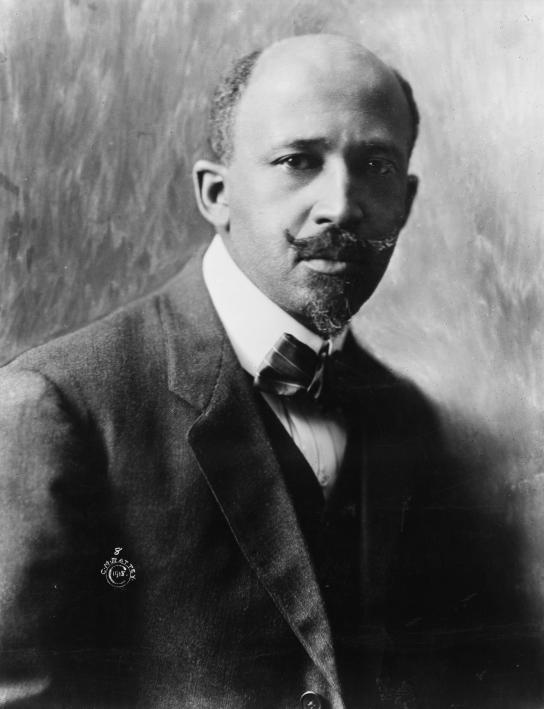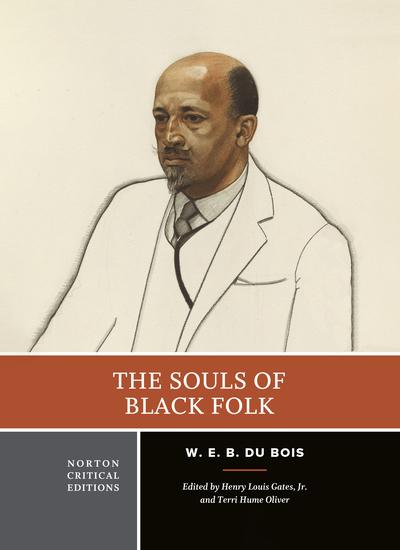Philosophy


"The Souls of Black Folk", W.E.B. Du Bois
Published in 1903, The Souls of Black Folk is a work of American literature on the Contemporary Civilization syllabus, in the history of sociology and a cornerstone of African-American literature.
In The Souls of Black Folk, Du Bois used the term "double consciousness", perhaps taken from Ralph Waldo Emerson ("The Transcendentalist" and "Fate"), applying it to the idea that black people must have two fields of vision at all times. They must be conscious of how they view themselves, as well as being conscious of how the world views them. Outside of its notable relevance in African-American history, The Souls of Black Folk also holds an important place in social science as one of the early works in the field of sociology.

William Edward Burghardt Du Bois was born on February 23, 1868, in Great Barrington, Massachusetts, the son of Alfred Du Bois and Mary Silvina Burghardt Du Bois. After graduating valedictorian of his high school class, he attended and graduated from Fisk in the spring of 1888. Several years later, in 1895, Du Bois became the first African American to earn a Ph.D. from Harvard.
Throughout his long life, Du Bois worked tirelessly to combat racism. The Souls of Black Folk, arguably Du Bois’s most famous and enduring book, was first published while he was teaching at Atlanta University. He was 35 years old. The book contains a collection of Du Bois’s essays, several of which had been previously published in the Atlantic Monthly magazine in the years leading up to the book’s launch.
The Souls of Black Folk, read as a single work, is a unique admixture of history, social documentary, autobiography and anthropological fieldwork. By drawing on such a range of disciplines, Du Bois is able to offer his readers different lenses for viewing one central problem: the devastating effects that living in segregation had had on the souls and consciousness of black people.
One way to understand The Souls of Black Folk is as a response to the legacy of an earlier black American leader, Booker T. Washington. Washington was, by most accounts, the leading figure in the black community between 1895 and 1910. He advocated a gradual approach to ending racism, an approach that centered on an education in technical and industrial skills. Such an education, to Washington’s mind, was one that could lay the economic foundation for social and political progress for black Americans.

“It is a peculiar sensation, this double-consciousness, this sense of always looking at one’s self through the eyes of others, of measuring one’s soul by the tape of a world that looks on in amused contempt and pity. One ever feels his two-ness, – an American, a Negro; two souls, two thoughts, two unreconciled strivings; two warring ideals in one dark body, whose dogged strength alone keeps it from being torn asunder” (Du Bois, The Souls of Black Folk, p. 2).
While Du Bois had high admiration and great respect for Booker T. Washington, he could not abide Washington’s program. The central issue, for Du Bois, was that Washington’s policies acquiesced to the alleged inferiority of black Americans. On Du Bois’s view, Washington was essentially asking black Americans to give up political power, civil rights and higher education – resources that, to Du Bois’s mind, were critical in the fight to achieve equality. As Du Bois writes in the third chapter of The Souls of Black Folk (entitled “Of Mr. Booker T. Washington and Others"), “Negroes must insist continually, in season and out of season, that voting is necessary to modern manhood, that color discrimination is barbarism and that black boys need education as well as white boys.”
Du Bois himself worked in season and out to secure equal rights for black Americans. His philosophy, outlined in eloquent and moving prose in The Souls of Black Folk, continues to make a monumental impact not only on the field of Black Studies but also on the course of American – and global – history.
Written by Patrick Comstock, Teachers College, Columbia University

Please log in to comment.